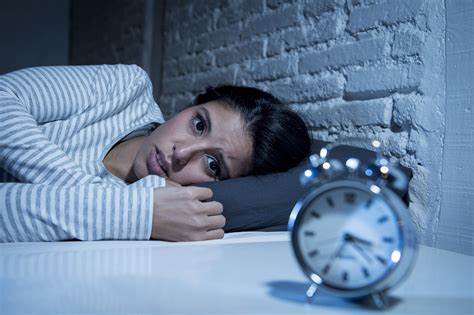sleeping tablets
side effects of overtaking caffeine
A sleep disorder, or somnipathy, is a medical disorder of an individual’s sleep patterns. Some sleep disorders are severe enough to interfere with normal physical, mental, social and emotional functioning. Sleep disorders are frequent and can have serious consequences on patients’ health and quality of life.

Sleeping Disorder
Caffeine can significantly disrupt sleep patterns and contribute to sleeping disorders. Its stimulant properties inhibit the onset of sleep, reduce sleep quality, and increase the likelihood of insomnia. It is advisable to limit or avoid caffeine intake, particularly close to bedtime, to promote better sleep.
Your heart rate Can increasing
Yes, caffeine can increase heart rate. It acts as a stimulant, affecting the central nervous system and causing an elevation in heart rate. This is due to its ability to block adenosine receptors, leading to increased release of adrenaline, which can accelerate the heartbeat.
May Induce Anxiety Attacks
Consuming too much caffeine can cause significant anxiety. Research on teenagers demonstrated a link between high caffeine consumption and increased feelings of stress and anxiety. People with anxiety commonly experience mood swings, nervousness, and restlessness, which can be aggravated by caffeine. It’s important to be cautious if these symptoms arise.
May Effect Stomach Disorders
Caffeine, found in coffee, contains acids that can trigger the stomach to produce additional acid. It can increase stomach acid that may lead to gastroesophageal reflux situation there stomach will fall down into esophagus. Moreover, people have reported personal experiences indicating that excessive caffeine intake could potentially result in digestive problems and stomach disorders, such as feelings of sickness, abdominal discomfort, loose stools, and abdominal swelling.
May Cause Insomnia
Insomnia is a sleep problem where falling and staying asleep is challenging. It often occurs as a withdrawal symptom alongside fatigue and headaches, especially in heavy caffeine consumers. Quitting caffeine can lead to sleeplessness and irritability. Consuming caffeine before bed can cause tremors, sleeplessness, and palpitations.
May Increase Blood Pressure Levels
Individuals with hypertension should be cautious about their caffeine intake. Caffeine temporarily raises blood pressure (9), and while its long-term effects are unclear, it may exacerbate irregular heart rhythms. Some studies suggest no connection between coffee and hypertension (10), requiring further research. Additionally, young adults with mild hypertension who consume over four cups of coffee daily face a fourfold increase in heart attack risk compared to those who consume two cups or less.
Addiction
Caffeine has addictive properties that can lead to dependency. Regular consumption builds tolerance, requiring higher doses for the same effect. Abrupt cessation may cause withdrawal symptoms like headaches, fatigue, and irritability. While milder than other addictions, caffeine addiction should be approached with caution.
May Increase The Risk Of Urinary Incontinence
Caffeine raises the risk of urinary incontinence in women a condition where bladder control is lost. It leads to unexpected urine leakage during activities like laughing, coughing, or sneezing.
Might Cause Weight Gain
Caffeine might cause stress, as seen in animal studies linking stress to obesity (14). However, there is no direct evidence associating caffeine with weight gain or long-term obesity. Some speculate that caffeine raises stress hormone levels, potentially increasing hunger, but research hasn’t confirmed this.
May Cause Hallucinations
Excessive caffeine consumption can induce a “high” feeling, causing dizziness, confusion, and hallucinations. These effects are intensified with intake exceeding seven cups of coffee (over 300 mg of caffeine daily) (15). In extreme cases, convulsions from caffeine overdose have resulted in fatalities.
May Increase The Chances Of Osteoporosis
Consuming excessive caffeine can heighten the risk of osteoporosis, particularly in older women with compromised calcium levels (17). Caffeine hinders calcium absorption, leading to weakened bones (osteoporosis), especially when calcium intake is insufficient
Additionally, consuming too much caffeine may cause muscle discomfort and twitches, although further research is necessary to fully comprehend this aspect.
Can Inhibit Collagen Production In The Skin
Caffeine can have various effects on the skin. It may help reduce inflammation and redness, promote blood circulation, and temporarily tighten the skin. However, excessive consumption or topical application of caffeine can lead to dryness, irritation, and potentially worsen certain skin conditions.
May Impair Hearing Loss Recovery
Based on a guinea pig study, caffeine could potentially hinder the recovery of noise-induced hearing loss (23). This correlation is speculated to exist in humans too, but further research is needed to confirm it.
May Trigger Acne
Drinking multiple cups of coffee per day can contribute to acne formation. Caffeine elevates stress hormone levels, intensifying the likelihood of breakouts. Furthermore, caffeine can disrupt the body’s equilibrium, leading to stress and subsequent skin breakouts.
May Cause Allergies
Caffeine allergies are rare, but a few individuals may develop heightened sensitivity. This can result in allergic reactions such as rashes, hives, and discomfort.
Bottom Line
Moderate caffeine intake offers notable health benefits, but excessive consumption can have adverse effects. Individual responses differ, indicating that higher isn’t necessarily better.
To enjoy caffeine’s advantages without drawbacks, assess sleep, energy levels, and related factors honestly, adjusting intake as necessary.

